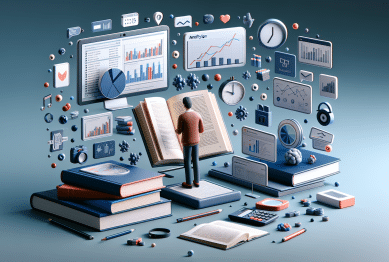Curious about building resilience in rapidly changing job markets? This guide reveals impactful future proof skills you can begin learning today through online education platforms, career development pathways, and digital literacy programs. Moreover, it explains how digital, analytical, and adaptive skills are shaping the landscape of learning and work. In an economy where disruption is constant, investing in future proof skills ensures individuals remain not only employable but also positioned to thrive as technology evolves.
Understanding Future Proof Skills in a Digital Age
Future proof skills are competencies that retain long-term value regardless of market shifts or technological changes. These abilities include digital literacy, data analysis, creative problem-solving, and emotional intelligence. By cultivating them, learners strengthen their adaptability and improve long-term career security.
Recent reports from the World Economic Forum highlight that future proof skills are now as critical as formal qualifications. As automation and AI replace routine work, professionals with adaptable skill sets maintain their relevance and resilience (https://www.weforum.org/reports/the-future-of-jobs-report-2023).
Moreover, digital transformation has touched nearly every sector—from education and healthcare to retail and manufacturing. Consequently, the demand for skills such as cloud computing, cybersecurity, and coding continues to grow. These technical abilities open doors across industries while safeguarding employability.
Equally important are soft skills such as collaboration, empathy, and adaptability. These qualities enhance workplace performance and prepare individuals to handle complex, unpredictable challenges. In fact, employers increasingly value candidates who combine technical proficiency with people-centered strengths, because this hybrid combination supports both innovation and sustained growth (https://www.mckinsey.com/featured-insights/future-of-work/building-workforce-skills-at-scale-to-thrive-during-and-after-the-covid-19-crisis).
Accessible Online Learning Platforms and Resources
The rise of online platforms has democratized learning opportunities. For example, Coursera, edX, and LinkedIn Learning provide structured programs in critical fields like machine learning, project management, and communication. In addition, these platforms frequently partner with top universities, ensuring the learning experience remains aligned with industry demands (https://www.coursera.org/).
Beyond global platforms, community colleges and nonprofits also contribute. They provide free or low-cost bootcamps that cover essential skills such as digital literacy or basic coding. These programs emphasize hands-on projects and practical applications. Consequently, participants leave with both knowledge and confidence to apply their skills immediately in the workplace.
Moreover, micro-credentials and digital badges play a growing role in continuous education. Unlike traditional degrees, they focus on specific, measurable skills. As more employers recognize their legitimacy, these badges give learners tangible ways to showcase expertise (https://www.opencolleges.edu.au/informed/features/micro-credentials-digital-badges-education/). This shift makes learning more flexible, allowing workers to update their abilities quickly as industries change.
Digital Literacy and Data Analysis in the Modern Landscape
Digital literacy is now considered a baseline requirement for participation in modern economies. It includes basic technical competencies such as internet safety, effective communication across platforms, and proficiency in productivity software. Programs like Grow with Google help individuals develop these essentials and use them to access new careers (https://grow.google/).
Beyond foundational knowledge, data analysis represents one of the most in-demand future proof skills. As organizations collect massive datasets, the ability to interpret information and extract insights becomes invaluable. Professionals equipped with skills in Excel, Power BI, or Google Analytics can influence strategic decisions, improve operational efficiency, and drive innovation.
Furthermore, data visualization allows professionals to communicate findings effectively. Charts, dashboards, and trend analyses simplify complex ideas, making them accessible to stakeholders at all levels. Importantly, learning these tools does not require advanced mathematics. Many accessible online courses guide learners step by step, proving that determination matters more than prior expertise.
Problem Solving and Critical Thinking for Career Resilience
Critical thinking and problem solving are consistently ranked among the most vital future proof skills. They empower professionals to question assumptions, assess risks, and create solutions tailored to real-world challenges.
Educational institutions increasingly embed these skills into their curricula. Moreover, online resources like case study simulations and competitions give learners chances to practice. For example, OpenLearn and FutureLearn curate exercises that expose students to real-world problems and multiple perspectives (https://www.open.edu/openlearn/).
Problem-solving works best when combined with clear communication and collaboration. Professionals who can analyze problems and then explain solutions persuasively bring tremendous value to organizations. Consequently, building strong problem-solving skills ensures career resilience and reduces the risk of obsolescence, even in turbulent industries.
Developing Emotional Intelligence and Adaptive Mindsets
Emotional intelligence (EQ) is another cornerstone of future proof skills. High EQ strengthens self-awareness, empathy, and social awareness. These qualities make individuals more effective leaders, better teammates, and more resilient professionals.
In addition, adaptive mindsets are crucial in times of rapid change. Workers who can embrace uncertainty and pivot when needed often outperform those with narrow expertise. Online workshops and leadership training now emphasize EQ and adaptability as much as technical training (https://www.ccl.org/articles/white-papers/the-importance-of-emotional-intelligence-in-todays-workplace/).
Moreover, mentorship programs and peer learning create opportunities for reflection and feedback. By engaging with diverse perspectives, individuals grow their emotional intelligence and learn to approach challenges more flexibly. Over time, this adaptability becomes a defining strength, enabling professionals to thrive regardless of industry disruption.
Practical Steps to Start Learning Future Proof Skills
Getting started with future proof skills doesn’t require massive changes. Instead, it’s about consistent small actions that build momentum. Begin by identifying areas of strength and weakness. Then, use online career assessments or skills audits to design a personalized learning plan.
Next, choose an online provider or bootcamp that matches your style and availability. For example, commit to completing one micro-course per month or participating in a community project. Moreover, share achievements on professional networks or digital portfolios to build credibility with potential employers.
Staying engaged is essential. Join study groups, online forums, or peer networks to exchange ideas. In addition, track progress regularly and celebrate milestones to reinforce motivation. Each new skill learned not only adds to employability but also builds confidence and adaptability.
References
1. World Economic Forum. (2023). The Future of Jobs Report 2023. Retrieved from https://www.weforum.org/reports/the-future-of-jobs-report-2023
2. McKinsey & Company. (2021). Building workforce skills at scale to thrive during and after the COVID-19 crisis. Retrieved from https://www.mckinsey.com/featured-insights/future-of-work/building-workforce-skills-at-scale-to-thrive-during-and-after-the-covid-19-crisis
3. Coursera. (2024). Explore career-aligned courses, certificates, and degrees. Retrieved from https://www.coursera.org/
4. Open Colleges. (2022). Micro-Credentials and Digital Badges: What They Are and How They Work. Retrieved from https://www.opencolleges.edu.au/informed/features/micro-credentials-digital-badges-education/
5. Google. (2024). Grow with Google: Free training, tools, and resources. Retrieved from https://grow.google/
6. Center for Creative Leadership. (2023). The Importance of Emotional Intelligence in Today’s Workplace. Retrieved from https://www.ccl.org/articles/white-papers/the-importance-of-emotional-intelligence-in-todays-workplace/










 Unlocking Small Business Growth in 2025: What You Need to Know
Unlocking Small Business Growth in 2025: What You Need to Know 

